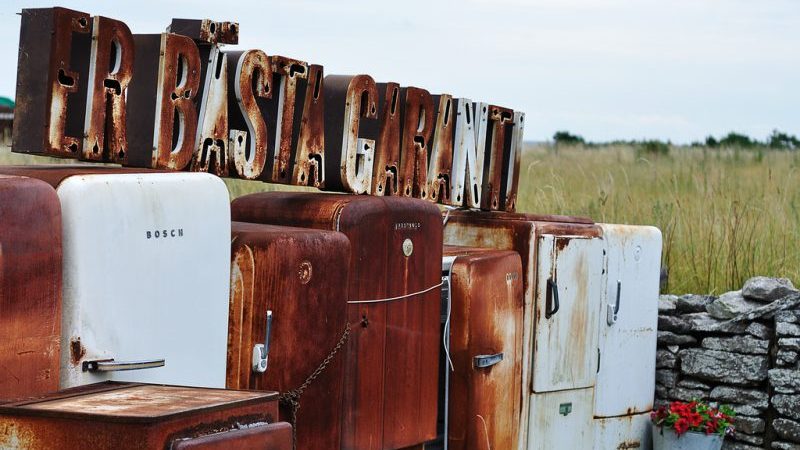The treaty that banned CFCs is often hailed as a paragon of international law. It works: the chemical industry has found alternatives and the ozone layer is steadily healing.
So it was a shock when scientists revealed evidence of new sources of CFC-11 this week coming from somewhere in East Asia. China is the prime suspect, given its previous levels of production. Soila Apparicio broke the news that the UN will investigate the matter.
How will members of the Montreal Protocol deal with the rogue emissions? This is a test of the enforcement powers of an important lever in the fight against climate change.
CFCs were targeted because they deplete our planet’s protective ozone layer, but they are also greenhouse gases. They were largely replaced in air conditioning and fridges by HFCs, which are better on ozone but continue to contribute to global warming. Now the Kigali Amendment has set a phasedown plan for HFCs under the same treaty.
More broadly, as countries negotiate the accounting rules for emissions under the Paris Agreement this year, it shows the importance of independent monitoring.
Figure of the week
18 million – net jobs to be created in the green economy by 2030, according to the International Labor Organization
London’s brown underbelly
One of the UK’s claims to climate leadership is London’s green finance hub, with a plethora of sustainable investment initiatives and green bond issues.
But while the likes of Shell and BP come under increasing shareholder pressure to climate-proof their plans, on the Alternative Investment Market there is no such accountability.
Chloé Farand of DeSmog UK took a deep dive into London’s junior stock exchange and the shady oil companies using it to run drilling operations in Africa.
What the frack?
In a triumph of hope over experience, the UK government has made a renewed push for shale gas fracking.
Energy and clean growth minister Claire Perry made the dubious claim gas is a “low carbon” energy source and will help meet the country’s climate goals.
See Carbon Brief’s Simon Evans for a fact check and reminder of the Committee on Climate Change’s advice on this subject. In short, for Perry’s assertion to be credible, carbon capture and storage would need to be a lot more advanced than it is now.
Toothless watchdog
It is this kind of spin and disregard for independent advice that shows why the UK’s climate change law needs a robust enforcement mechanism.
At the moment, the threat of EU fines is there to keep the government honest. After Brexit, the environment department proposes creating a green watchdog – but under the draft plans, it cannot take the government to court and its remit excludes climate change.
Climate conversations
The UN Security Council is starting to take climate change seriously – Ashley Murphy, Keele University
EU’s Iran panic
EU energy and climate commissioner Miguel Arias Cañete flew to Iran today to talk “energy cooperation”, as US sanctions loom.
Donald Trump’s decision to ditch the Iran nuclear deal and re-impose sanctions causes problems for energy projects such as the Southern Gas Corridor, a core element of Cañete’s plan to diversify EU gas imports.
Maybe Cañete should spend less time in Tehran and more time planning how to insulate Europe’s leaky buildings so they use less gas. Just a thought.
Jobs over climate?
Leaked documents suggest a German commission on phasing out coal use will prioritise jobs over climate protection, Clean Energy Wire reports.
The prospect of exiting coal is controversial in Germany, as mining communities fear losing their economic heart. On the other hand, a slow transition risks dragging the country further behind on its emission reduction targets.
As the ILO report showed, the green economy may be a net creator of jobs, but there will be winners and losers along the way.
Quote of the week
“It is so hot that in New Delhi the street melts… And when children, the poor kids in the street, stop you they don’t ask for money or food, they ask for ‘pani’ – water” – Anjali Jaiswal of NRDC India on recent deadly heatwaves
11 things
After two weeks of grindingly slow UN climate talks in Bonn, we were feeling quite depressed. So we put together a list of ways the Paris Agreement is already having an impact in the real world. Number five is my favourite.
